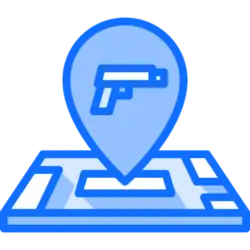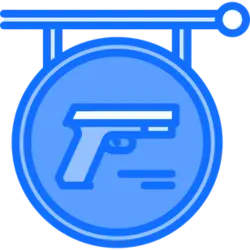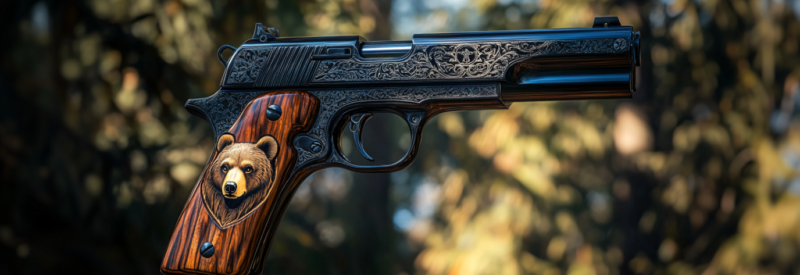TABLE OF CONTENTS
- How to Get an FFL in California
- Step 1: Meet All of the FFL Requirements
- Step 2: Select the Type of FFL You Need
- Step 3: Complete an Online FFL Course
- Step 4: Apply for Your California FFL
- Step 5: Have an Interview with a Representative from Your Regional ATF Office
- FFL License Costs in California
- Getting a Federal Firearms License in California: Closing Thoughts
- FFL California FAQs
- Reviewed by Ryan Cleckner
You need to obtain a California FFL in order to legally buy, manufacture, and import guns in the state of California. To clarify, a Federal Firearms License (FFL) authorizes you to start your own firearms business. Below explains what an FFL is in greater detail, as well as how to go about acquiring one in California.

How to Get an FFL in California
Issued by the federal government, Federal Firearms Licenses permit individuals or businesses to engage in the buying, selling, and transferring of firearms. In order to get an FFL in California, you need to submit an application to the Bureau of Alcohol, Tobacco, Firearms, and Explosives (ATF), though you want to ensure it’s an application the ATF will approve. ATF approval is, obviously, the most important factor. That said, below are the five steps to submitting a CA FFL application that the ATF will approve.
Step 1: Meet All of the FFL Requirements
Technically, the first step in obtaining an FFL in California is reading this article, but you’re already doing that. (Way to go!) Next, verify that you meet the basic eligibility requirements.
The state of California expands on federal requirements, which include being at least 21 years old, having a valid state-issued ID, and not being prohibited from possessing firearms. Once you have verified that you meet the federal and state eligibility requirements (listed below), you can begin the application process.
Federal requirements
The federal requirements you must meet in order to be granted a Federal Firearms License do not vary from state to state. You can find the federal requirements for an FFL here. However, those are just the federal requirements. Below, we detail the state-specific requirements for a CA FFL.
State requirements
While the federal government issues Federal Firearms Licenses, the ATF will not approve applications that do not comply with state requirements. Thus, you must meet state requirements to obtain this federal license.
Federal conditions are the bare minimum that individual states need to adopt. While some states don’t enforce additional conditions, California is an example of a state that expands upon the federal requirements. To help you navigate these additional prerequisites, below is a list of the licenses and certifications you need in order to operate a gun business in California.
California Certificate of Eligibility
In California, all firearms purchasers must obtain a Certificate of Eligibility from the Department of Justice (DOJ). This annual certificate verifies that you are not prohibited from acquiring or possessing firearms. All of your employees must also obtain this certificate each year.
You must apply for a Certificate of Eligibility electronically. It costs $71 in fingerprinting and processing fees, though the fee may vary by your California DOJ location.
Notes: Though you do not have to obtain this before applying for your California FFL, you do need to secure this certificate in order to legally sell firearms in the state.
California Centralized List of Firearm Dealers
After receiving your Certificate of Eligibility, you must register yourself and your business on the California Centralized List of Firearm Dealers.
California Ammunition Vendor License
As of 2018, per California Penal Code Section 30342, Subdivision (a), to sell ammunition in California, you need a separate license. However, you do not need this license to obtain a Federal Firearms License in California. Likewise, you do not need a CA FFL to obtain a California Ammunition Vendor License.
This distinction is important because FFL holders must run a background check for every ammunition sale. Those without an FFL in California do not need to run a background check for ammunition sales. If you plan to deal only ammunition, not obtaining a CA FFL may be beneficial. Though, you will still need to register your business with the California DOJ.
Local and zoning requirements

The California local and zoning requirements are where many CA FFL applicants face difficulty. While many areas of California are not opposed to firearms businesses, some areas are. These districts make zoning an incredibly tedious process to discourage firearms businesses from opening in their area.
Home-based gun businesses may not find it any easier to set up shop in these areas. Before deciding on a business location, examine the zoning requirements. You cannot apply for an FFL in California without proving compliance with local and zoning requirements.
Step 2: Select the Type of FFL You Need
Upon meeting the state requirements for an FFL in California, you then need to select the type of FFL your business needs. There are a few factors to consider when choosing which FFL type your business needs:
- Type of firearms you plan to sell: The sale of certain firearms requires you to have a higher-tier FFL.
- Your business model: Are you a brick-and-mortar store or an eCommerce retailer? Are you manufacturing, importing, and/or selling firearms?
- California FFL restrictions: In California, there are a lot of regulations you need to follow in order to stay compliant. If you do you choose the right Federal Firearms License for your business needs, you’ll have an easier time achieving and maintaining compliance.
FFL license types
According to the ATF, there are nine types of Federal Firearms Licenses. These nine types are divided into three categories: Dealer, Manufacturer, and Importer. In order to determine which type of FFL you need for your business operations, please refer to this list of FFL types.
Step 3: Complete an Online FFL Course
In order to acquire a CA FFL, it’s not necessary to complete an online course, but it is highly recommended. RocketFFL provides step-by-step guides to obtaining Federal Firearms Licenses and Special Occupational Taxpayer (SOT) licenses. Through an online course, you’ll learn about the types of firearms eligible for sale, the paperwork required to sell them, and general business skills (like how to keep track of your inventory), as well as the reporting requirements to which you’ll be bound.
An added benefit of online courses, including RocketFFL, is that they provide information on achieving zoning law compliance. In a state with strict zoning laws, such as California, this can be incredibly helpful.
Step 4: Apply for Your California FFL
Once you have the necessary licenses and certificates, you should submit your Federal Firearms License application to the Bureau of Alcohol, Tobacco, Firearms, and Explosives (ATF). The application includes:
- Form 4473: The federal government requires this form to conduct a background check on individuals who wish to purchase firearms.
- Fingerprints: Your fingerprints are used to conduct a criminal background check.
- Photographs: Your photograph is used to create your FFL license.
- A completed Certificate of Good Standing from the California Secretary of State.
- A completed Application for Federal Firearms License.
- Necessary state certifications and proof of registration: This includes your California Certificate of Eligibility, Centralized List of Firearm Dealers registration, a local license confirming business zoning compliance, and proof of State Board of Equalization registration.
Step 5: Have an Interview with a Representative from Your Regional ATF Office
After completing your application, your regional ATF office will arrange an interview. During the interview, the Industry Operations Investigator (IOI) will inspect your business location and verify you understand the federal laws regarding firearms.
FFL License Costs in California
Much like the federal requirements, the initial application and renewal fees for a Federal Firearms License do not vary from state to state. You may find the application and renewal fees for an FFL here.
Note: Each initial application and renewal are good for a three-year period.
Getting a Federal Firearms License in California: Closing Thoughts
While California isn’t one of the easiest states from which to obtain a Federal Firearms License, it is achievable with some patience, attention to detail, and a bit of effort. After securing your CA FFL, the next step to launching your firearms venture is securing a gun-friendly payment processor. Because the firearms industry is considered “high risk,” your best bet is partnering with a merchant services provider that understands the challenges associated with high-risk industries.
Need a gun-friendly payment processor?
PaymentCloud has a 98%
approval rating.
Approval
Rating
FFL California FAQs
Do I need an FFL in California?
Most people think they need an FFL in California in order to purchase a gun. However, FFLs are only required for individuals and/or businesses planning to sell, manufacture, or import firearms. If you want to purchase a gun for personal use, you must do so from a dealer that is a Federal Firearms Licensee, but you do not need to hold an FFL yourself.
Note: All firearms purchases and transfers in California, including private party transactions and sales at gun shows, must be made through a licensed dealer under the Dealer Record of Sale (DROS) process.
How long does it take to buy a gun in California?
In California, there is a 10-day waiting period before a purchased gun is released to the buyer.
Who can apply for an FFL in California?
In general, any law-abiding, legal resident or citizen of the United States over 21 years of age is eligible to apply for an FFL in California.
Do I need to register as a business to get a California FFL?
Yes. In order to get an FFL in California, you need to satisfy the requirements, which include registering as a business in California.
How can I find an FFL dealer in California?
If you’re looking for a Federal Firearms Licensed gun dealer in California, there are a few places you can look:
- Search the ATF directory: Several websites maintain lists of dealers with FFLs, but the ATF website is the most reliable source.
- Check the Yellow Pages or online business directories: This is a good way to find local businesses, but it’s not always reliable for finding Federal Firearms Licensed dealers. You should verify that the local business you find is, in fact, registered as an FFL.
- Ask friends or family members if they know of any reputable dealers in your local area that are registered as FFLs.
Can you have a home-based FFL in California?
Technically, yes. You can obtain a home-based FFL in California. However, this process may prove cumbersome. There are many municipalities in California refusing to acknowledge a home as a compliant and properly zoned gun business.
Can I apply for an FFL with a California gun trust?
No. You cannot apply for a Federal Firearms License with a California gun trust. You may, however, be eligible to apply for an FFL transfer (i.e., purchase a gun) using a gun trust.
Does the BATF&E have requirements for an FFL in California?
The Bureau of Alcohol, Tobacco, Firearms, and Explosives may be referred to as the “ATF” or “BATF&E.” As the government agency responsible for regulating FFLs, it grants licenses to parties meeting the federal requirements for an FFL.
Do I need a SOT for my California FFL?
To manufacture or sell certain firearms, you need to obtain a Special Occupancy Tax (SOT) license in addition to your CA FFL. Specifically, if you plan to manufacture or sell NFA items (for example, silencers and short-barrel shotguns), you must apply for a SOT license.
How long does it take to get your FFL in California?
After submitting a completed Federal Firearms License application, you should receive your FFL within 60 days of the submission date. This application has a relatively quick turnaround compared to some of the state licenses and certificates you must obtain as a prerequisite, so plan accordingly.
How can I transfer an FFL in California?
If you wish to sell your gun-based business in California, the new owner must apply for their own FFL.
How much does an FFL transfer cost in California?
The state of California charges a $37.19 DROS fee.
How hard is it to get an FFL in California?
“Hard” is the wrong word to describe the process of obtaining an FFL in California. The process is better described as tedious. Many requirements in California are redundant in regard to the federal requirements. Additionally, some areas impose restrictions that make proper zoning nearly impossible.
This article has been reviewed by Ryan Cleckner and is factually accurate as of July 5, 2022.
Reviewed by Ryan Cleckner
Ryan Cleckner, the best-selling author of the Long Range Shooting Handbook and founder of Gun University and Rocket FFL, is a recognized firearms attorney specializing in firearms law/ATF compliance. Ryan has made appearances on the History channel as a sniper expert, and Fox as an industry expert.





